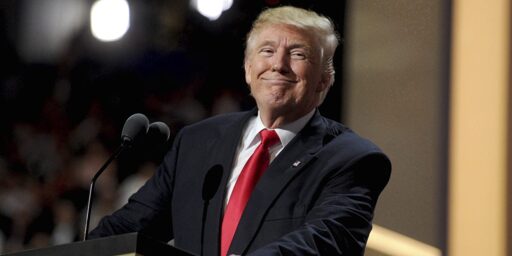Convicted of 34 felony counts in his hush money case, Donald Trump could have faced severe consequences. Each of the felony counts of falsifying business records was punishable by up to four years in prison and fines of up to $5,000. Yet U.S. District Judge Juan Merchan took a remarkably light approach in sentencing Friday, issuing Trump an “unconditional discharge” — meaning no jail time, no fines, and effectively no punishment except that he retains his felony conviction.
For many in the criminal justice reform and abolitionist space, his feather-light sentence further highlights the widespread inequities and failures of a criminal legal system where hundreds of thousands of Americans remain behind bars without ever even being convicted, let alone of a felony.
Despite the nonexistent penalties (aside from limits on his ownership of firearms and a requirement that he provide a DNA sample for a New York state database), Trump continued to rail against his prosecution. He called it “a very terrible experience” that was politically motivated, echoing his previous claims that he was facing a “two-tiered justice system.”
In the same city across a thin stretch of river, Ann Mathews, managing director of the Bronx Defenders, a public defenders nonprofit serving low-income Bronx residents, agrees that this case highlights the two tiers of justice. Just not in the way Trump means.
“This never happens for our clients,” said Mathews. “We felt the outrage. And then I think, wow, imagine the people we represent.”


It’s a symptom of it system destroying itself because of it’s inherent contradictions; it’s also the same reason why we’re going with fascism.